A Conversation with Innovative Black Cannabis Founders
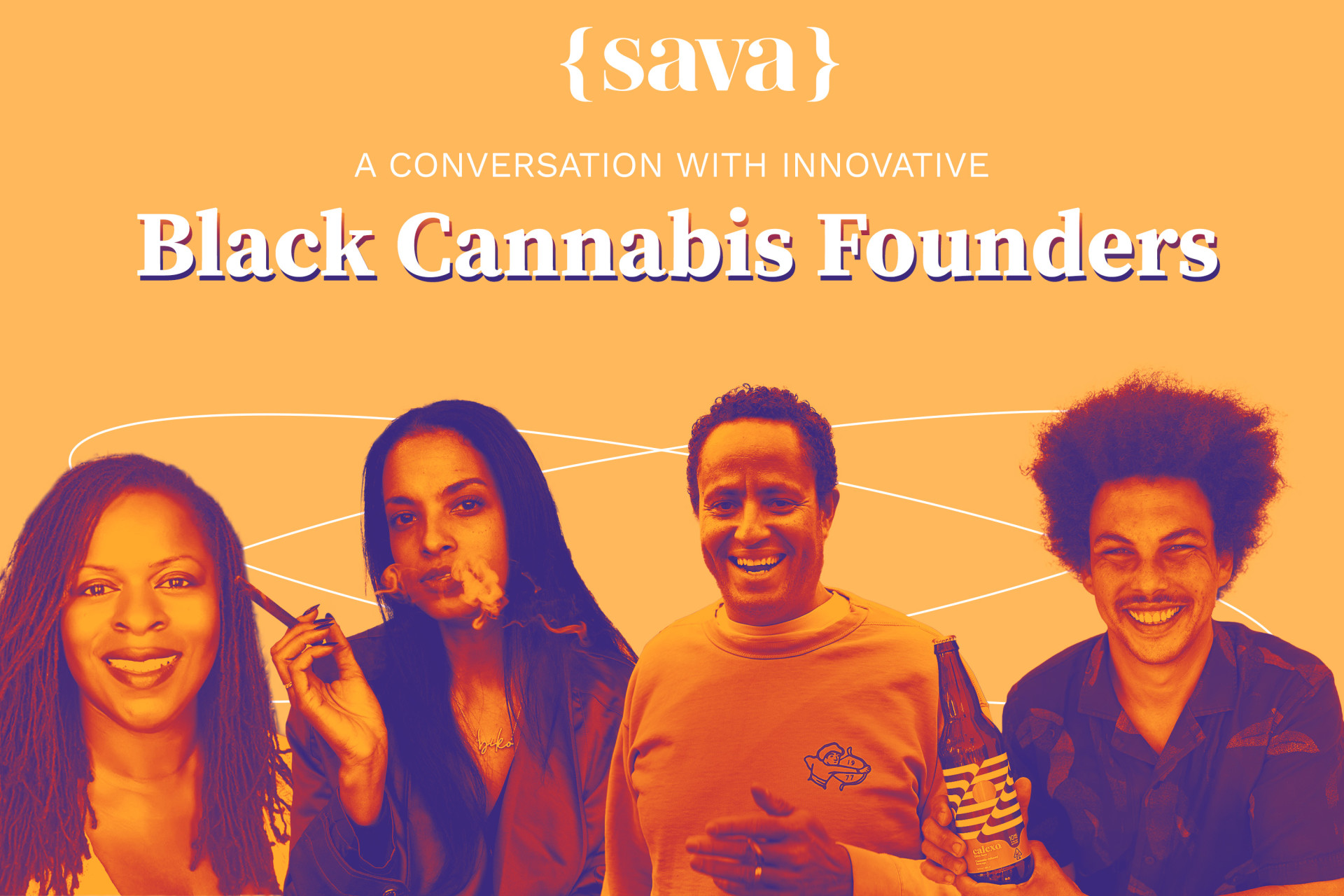
Cannabis history and Black history have been entwined for centuries. Musicians such as Bob Marley and Louis Armstrong helped elevate cannabis into a cultural phenomenon, and activists such as Wanda James fought for destigmatization of the plant. However, Black Americans have always disproportionately felt the impact of the War on Drugs, a wrong not yet resolved that remains hugely impactful on communities locally and across the country to this day.
In honor of Black History Month, we spoke with four Black founders in the cannabis industry—Timeka Drew, Kahlil Lozoraitis, Ian Colon, and Alicia Holcombe—about their experiences and thoughts on the rich history of this plant and its impact on Black communities today.
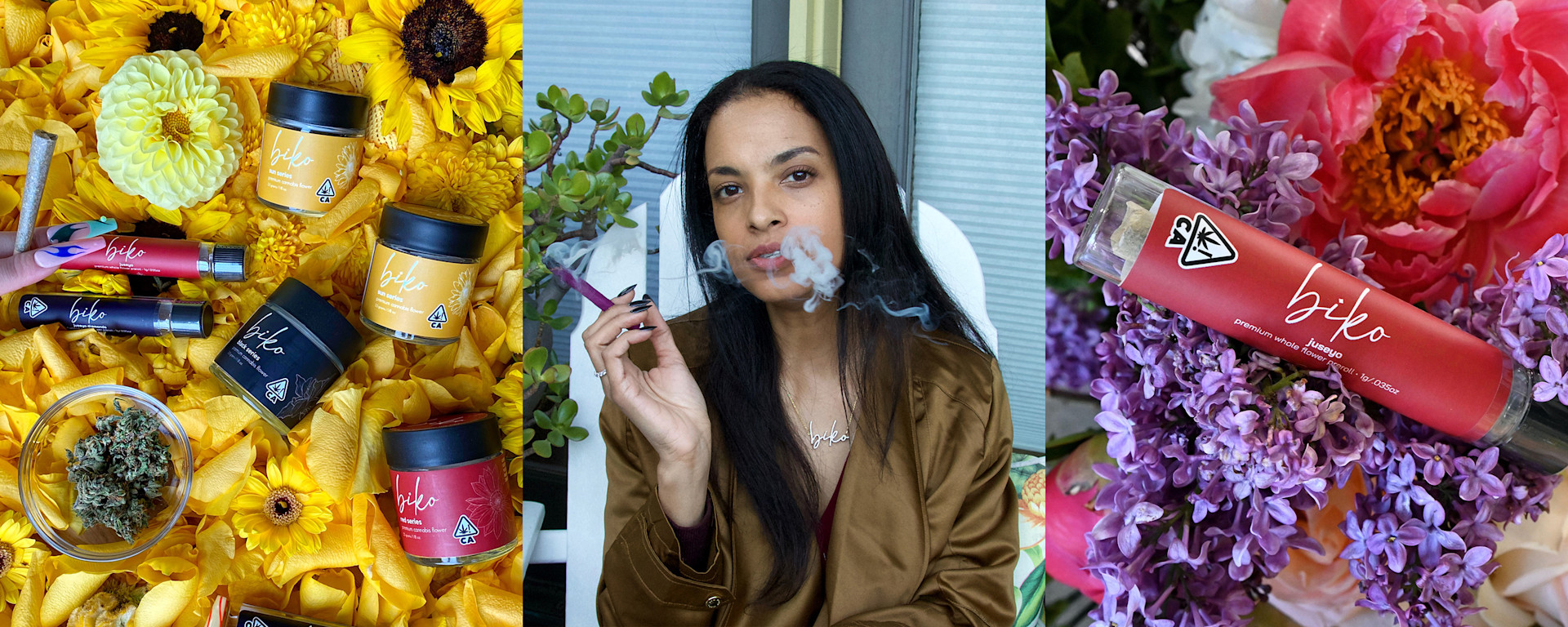
Biko
Led by founder and CEO Timeka Drew, Biko was created to celebrate the cultivation and use of cannabis as a time-honored tradition for (and by) women. As a Black woman-owned social equity brand, Biko's existence and success is embodied by working toward ending systemic racism and inequalities in the cannabis space.
Sava: Black folks have had a significant hand in shaping today's cannabis landscape. What are your thoughts on the history of Black identity and cannabis, and their relationship today?
Timeka: So many black culture icons of the past risked their freedom, their lives and their careers to help normalize this plant so that one day we could exercise the right to utilize it as medicine and for recreational purposes. When I hear people say they don’t like how equity organizers “racialize” cannabis, I am reminded that erasure of black experiences and black legacies of excellence and survival are rooted in systemic racism. We cannot truly discuss the current cannabis industry without celebrating the bravery of the black artists and organizers who have been leading the way towards cannabis liberation for decades (Josephine Baker, Billie Holiday, Ella Fitzgerald, Louis Armstrong). We have to remember that the war on drugs has always been about race. Fighting the war on drugs cannot happen without acknowledging what it was (and still is) about.
Sava: What's your experience as a Black woman in the cannabis industry been like?
Timeka: My experience of being Black in the cannabis industry has been full of:
Underestimation. Undervaluation. Erasure.
But, it has also been full of:
Community building. Dreaming. Appreciation and celebration. Knowledge that we can not only survive, but thrive. Intention setting. Success.
I look forward to witnessing and being a part of what we can build together in the future.
Sava: Are any of your products inspired by Black or African culture?
Timeka: As a descendant of people who were brought here against their will a long time ago, I lost my connection to my heritage, my language and my culture. When I found that I was of Nigerian descent, I wanted to celebrate it and be able to speak the language I never got to know through my brand. “Biko” means “please” in Igbo, a Nigerian language, and is used throughout the region. Medical cannabis saved my life, and to be able to build a brand that fuses my passion for the plant while celebrating black culture and community has been incredibly rewarding.
Sava: Any Black social equity advocacy organizations that you'd like to shout out?
Timeka: The Movement for Black Lives (M4BL) has been cultivating grassroots support to build people power within the black community across the county for years including legal resource guides, mutual aid resources, virtual events and more.
Gary Chambers is running for US Senate in Louisiana and is creating a conversation about the importance of normalizing cannabis within our communities across the country. Although his campaign is a local one, his focus and his relevance is national - he is a politician that speaks from the heart and is an inspiration for people working towards black liberation nationwide.
Supernova Women: Led by Black and Brown women, and created to empower communities of color to thrive within the cannabis industry, this award-winning organization has been doing incredibly important work benefiting every single entrepreneur of color throughout the state since its inception in 2015. I continue to be inspired by their leadership and know it is critical to support their continued work, this month and every month.
Sava: Anything else you'd like to share?
Timeka: I would like to lift up our graphic designer Marqui Jordan (@oohmarqui) who is a stellar example of black excellence—they bring a unique level of artistry to all of our projects and are one of the reasons our brand continues to stand out. Thank you, Marqui!
Try Biko’s Red Series Indica Flower here.
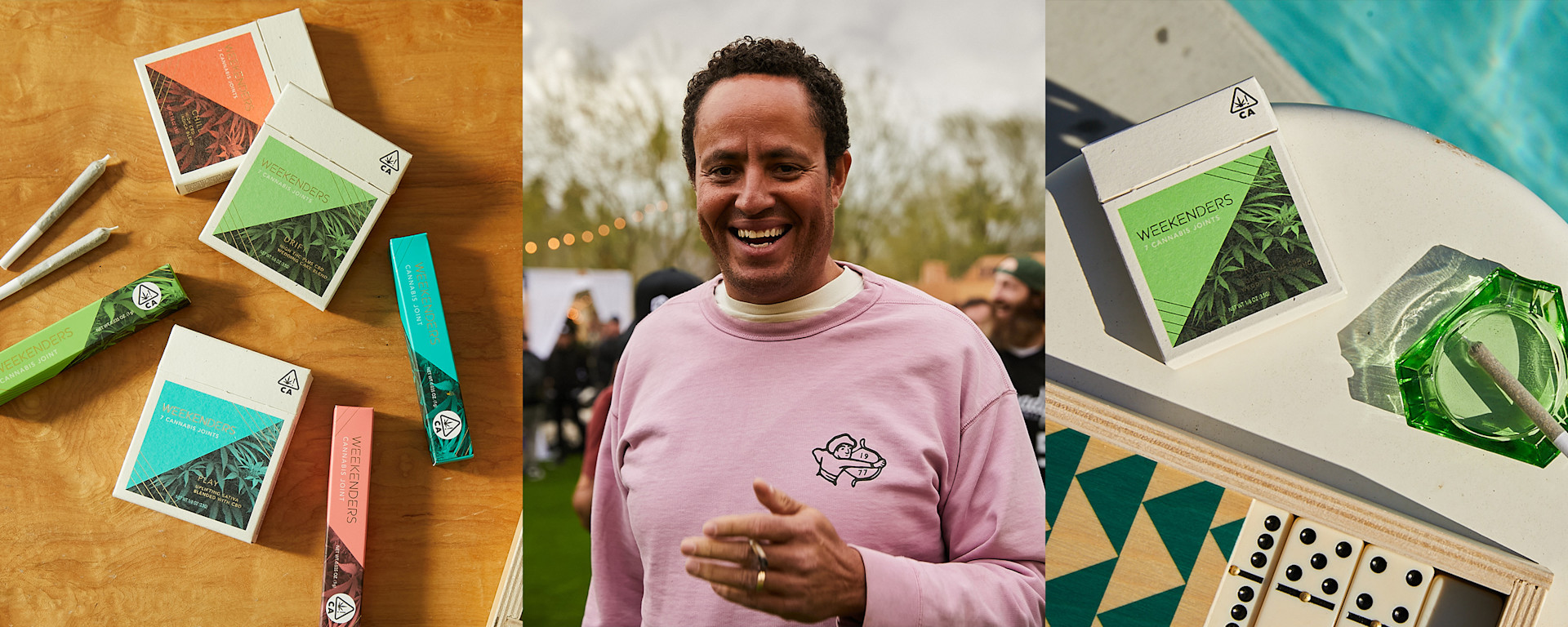
Weekenders
Led by CEO Kahlil Lozoraitis, Weekenders is a BIPOC-founded brand whose flower is sun-grown on small farms that use regenerative practices like cover cropping and making their own fertilizers. Weekenders pre-rolls are formulated with both CBD and THC for a perfectly balanced and euphoric high that pairs well with an active lifestyle.
Sava: What are your thoughts on the relationship between Black identity and cannabis?
Kahlil: I think about the double standard in criminal justice. You have a state like Mississippi voting overwhelmingly to legalize medical cannabis, while at the same time sentencing Allen Russell to life in prison for possession of 1.5 ounces of cannabis. That is just one case, but one can extrapolate that to a wider experience of black and brown people’s interaction with cannabis and the criminal justice system. As this industry grows toward federal legalization, we cannot forget about those still bearing the brunt of draconian drug laws, especially as they relate to cannabis.
Sava: What's your experience as a Black man in the cannabis industry been like?
Kahlil: My background is in the agency world, so I am used to being one of the few, if not the only, other black or brown face in the room, especially at the senior level. That said, in cannabis I am seeing more diversity in the partnerships that we have, and we try to make that a focus in the people that we hire and support.
Being a black CEO in cannabis already starts to change the narrative from CEO = Middle-aged white male. Disrupting that narrative is extremely important. I am inspired by the phase “what they see is what they’ll be” from the civil rights leader Andrew Hatcher. Visibility of successful African Americans in this new industry has an important impact on younger generations, as well as those who want to get into the industry now.
Also, for all the immense challenges I make sure to bring positivity and the vast majority of the people I work and interact with in this business support me in that. There is a sense of community and we’re doing our part to continue to build on that and make sure that it is maintained as the industry grows.
Sava: What are your plans for Black History Month?
Kahlil: As a majority black-owned business, we’re about this stuff all year round. Recently, we did a promotion with some key dispensary partners where we donated a portion of our sales over MLK Day weekend to support voting rights. Throughout the month and the year, we will continue to support social justice in ways that we can as this is something our entire team is passionate about.
Sava: What’s your personal history with cannabis?
Kahlil: I went to college in Colorado and that was my first introduction to what back then we called “kind nuggs.” It was revelatory; prior to that, it was all brick weed full of stems and seeds. We also grew some in college which was thrilling—I can still clearly recall the trimming parties during harvest. I also studied and did volunteer work in Kingston, Jamaica, in part to further my understanding of and connection to the plant. Being up in the Blue Mountains smoking a corn husk-rolled joint with a Rasta farmer…the beauty and the power.
I’ve also been lucky—around the turn of the century in San Francisco I was apprehended by the police in the Mission who mistook me for someone else they were after. The cop called in backup and we got searched and I had a quarter in my pocket that I just secured. Amazingly when the backup got there and realized I was not their guy, they gave me the weed back and sent me on my way. I’m fully aware that is not how that story usually ends.
Sava: Any Black social equity advocacy organizations that you'd like to shout out?
Kahlil: I’m inspired by Kika Keith and Gorilla Rx. Her persistence and preservice to bring her vision to reality and to document the challenges will hopefully help open the path for those behind her with more thoughtful legislation and support of social equity businesses.
I’m also inspired by Jesce Horton’s amazing grows in Portland, and his advocacy work in launching the Minority Cannabis Business Association.
Sava: Anything else you'd like to share?
Kahlil: Conscious consumption—people thinking about how and where their cannabis is grown. Who profits from the sale? Who and what is being supported with their purchase? I see it happening. We just need more of it–a lot more of it if we are to build this industry the right way.
Try our favorite Weekenders products:
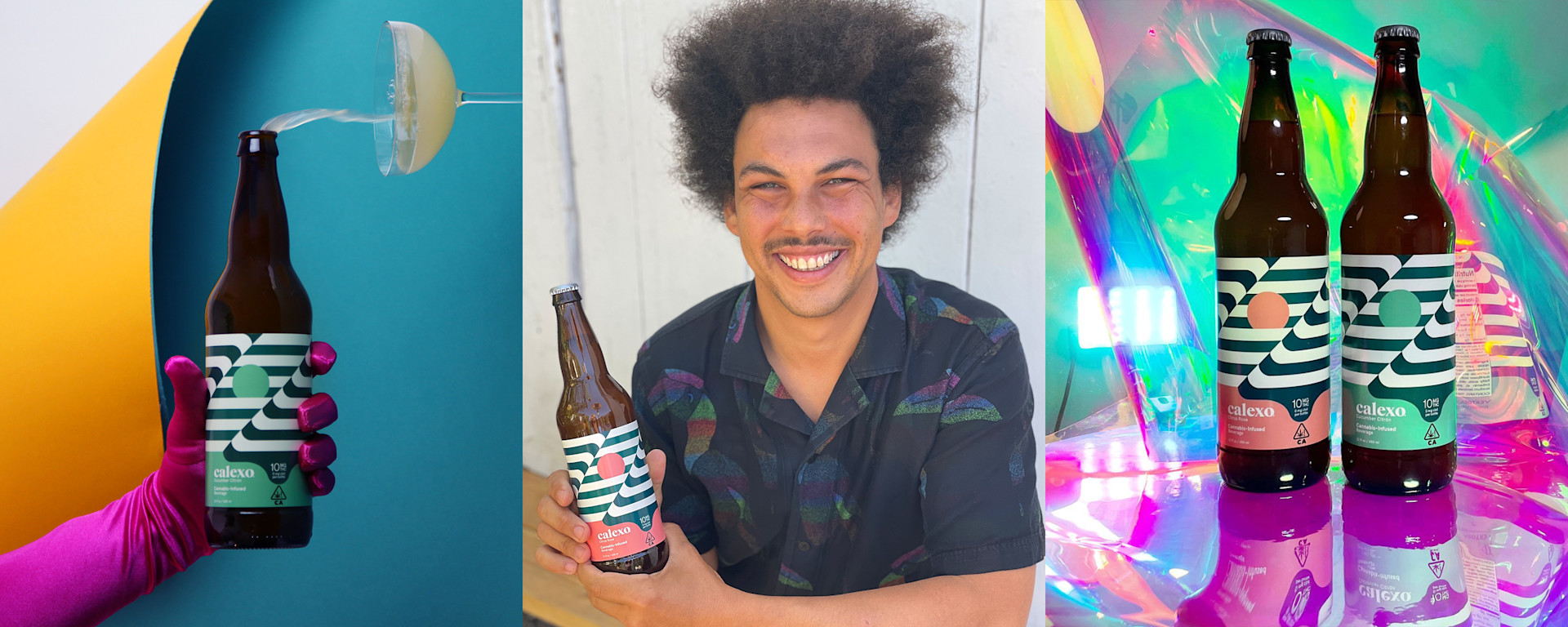
Calexo
Calexo was conceived in 2018 by late-blooming cannabis users, as an alternative to alcohol. The drink is a sparkling cannabis beverage made with all-natural fruit juices, botanicals, and nano-emulsified THC, and is precisely dosed for an easy-to-control, uplifting experience. The brand is led by CEO Ian Colon, a biracial Haitian and Jewish storyteller, artist, and activist.
Sava: How would you describe the history of Black culture and cannabis, and their relationship today?
Ian: The effects of incarceration, fear, lack of opportunity and unregulated sales that has been the way of treating the cannabis plant has disproportionately been felt by black and brown folks. As cannabis industrializes and becomes a branded product, I have guarded hope for greater inclusion in the means of production, not just advertising campaigns.
I am happy to see more Black faces in the industry and in promotional materials, however, I am wary of the mix of fascination and revulsion that dominant cultures have for those they relegate to the fringes of society, often using "outside" groups to signal a measure of cool while maintaining a clubby elite exclusive of any real diversity.
The pain that has been inflicted on generations of Black folks cannot be erased through a few equity programs granting a handful of businesses a legal but fiscally treacherous path forward. I am hopeful that the chance to give happiness and financial stability to families previously excluded from the table are in the future of the cannabis industry because those with the power to do so act to share in the ownership of the resources they control.
Sava: What's your experience as a Black man in the cannabis industry been like?
Ian: As a biracial Black man, I have rarely felt like I was in a group of “my people,” yet recently I have felt more than ever that the creative folks who want to recognize the reality of history and make a better future together that I consider “my people” are all around me. Creating an opportunity to share a moment of social connection with others has introduced me to so many experiences and histories. I have had the good fortune to have mentors and collaborators who have shared so much of themselves in order to create a platform for showcasing the creativity of all types of people.
Sava: Are any of your products inspired by Black or African culture?
Ian: I'd like to think all of our products are. Calexo was created to make everyone feel good in their body and find what works best for them. For too long too many groups have been left out of the conversation about what is normal, and we are here to help move past that notion and usher in an era of celebrating each of us as we are.
Sava: Any Black social equity advocacy organizations that you'd like to shout out?
Ian: The Success Centers are an incredible group of folks working to create opportunity through both education and employment to the communities of the Bay Area. They create incredible change in their participants' lives through job training, skill development and a network of folks working tirelessly to make circumstances better for those most underserved.
For Freedoms is an artist-run organization advocating for civic engagement. They create direct action events that solidify community through art and conversation. The members of For Freedoms are some of the most positive and motivated people we have ever met
Sava: Anything else you'd like to share?
Ian: Calexo is releasing a new line of drinks this spring, keep your eyes open and stay in touch at www.calexo.co or @drinkcalexo
Try our favorite Calexo products:
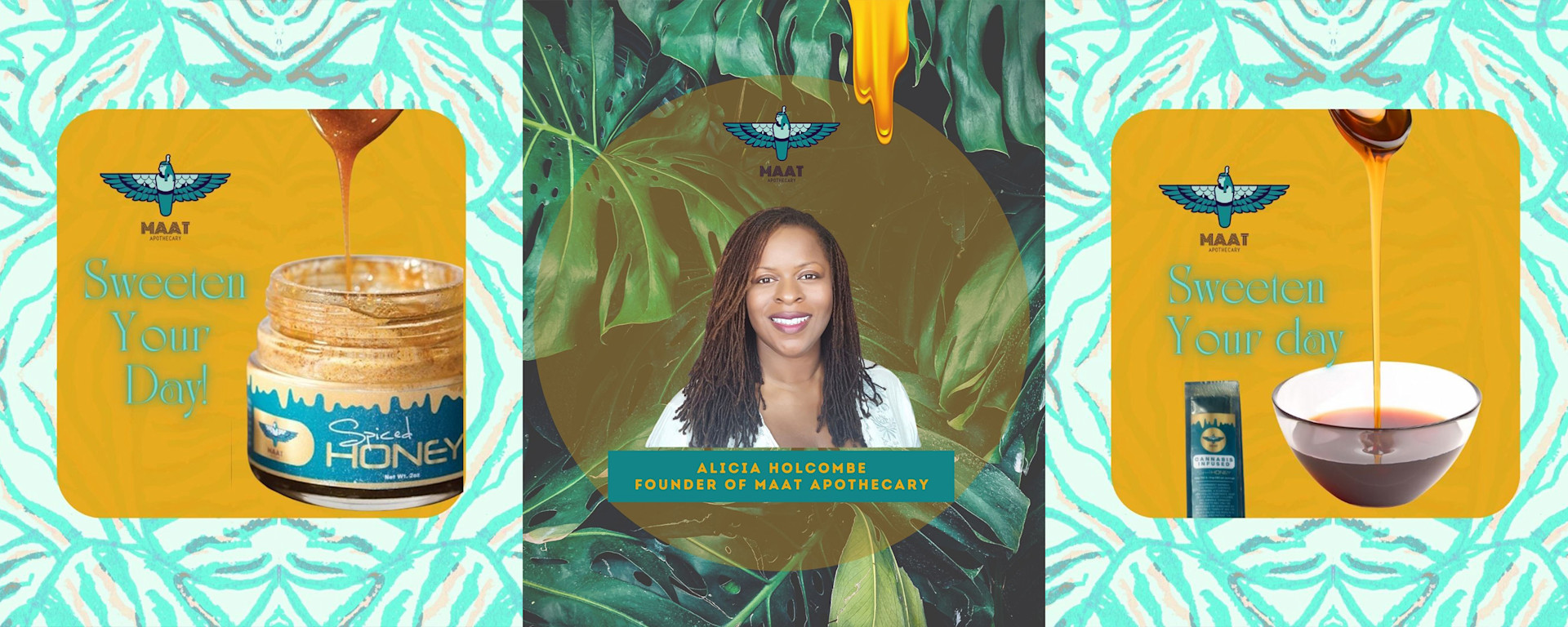
Maat Apothecary
As a WOC-led Oakland cannabis equity brand, MAAT Apothecary is dedicated to neutralizing the effects of systemic racism and harm from the War on Drugs. The brand is led by Generational Herbalist and Wellness Equity advocate Alicia Holcombe, who brings twenty years hands-on experience formulating and manufacturing natural body care products that support holistic health.
Sava: What are your thoughts on the history of Black culture and cannabis, and their relationship today?
Alicia: As an herbalist, it’s always been clear to me that cannabis was an important subsistence medicine for our wellbeing. In spite of social tropes and severe legal consequences, generations shared wisdom about the power of this sacred plant to help restore our balance and deal with the physical and mental struggles of life. I can't tell you how many times cannabis has helped folks "laugh to keep from crying". The rest of the world is finally shifting as they come to these realizations. It’s exciting to witness this awakening. There is a necessary counter balance to this (MAAT), that is ensuring equity is centered in our emerging industry to repair the harms done to people and communities by the failed War on Drugs.
Sava: What's your experience as a Black woman in the cannabis industry been like?
Alicia: While coming of age, folks that were a part of cannabis culture were typically cool AF! Those creative, open minded, countercultural vibes were the foundation of colorful and inclusive social spaces that so many of us enjoyed. As cannabis transitions into an “industry,” it’s clear that harvesting our energy and ideas is important to corporations, we want to ensure that the wellbeing of the people is respected and compensated equitably. I'm looking forward to the creation of more inclusive spaces in cannabis.
Sava: Are any of your products inspired by Black or African culture?
Alicia: Our spiced honey in many ways is an ode to our lineage. Elders would often administer herbal tinctures and teas that had to be paired with honey in order to make them pleasant enough to swallow. We continued that practical approach to herbal medicine making and created our Infused Spiced Honey as a nutraceutical filled with anti-inflammatory spices that support immunity and have been used by our ancestors since antiquity. It’s a pleasure to share canna-wellness products that help people balance their mind & body leaving them joyful, mellow, and more imaginative in these times.
Sava: Do you have any plans for Black History Month?
Alicia: One of our super soft MAAT Apothecary hoodies will be raffled off at the end of the month from a pool of folks who answer our challenge to “Create Black History.” Anyone can create Black History! Non-Black people have also contributed in meaningful ways to Black History. We will all be ancestors one day, so what are you doing to create something worth celebrating and remembering during Black History Month? That’s the challenge, to contribute actions and ideas to the collective consciousness that will serve to neutralize racism and oppression forever. We’re looking forward to some amazing and transformative ideas.
Sava: Any Black social equity advocacy organizations that you'd like to shout out?
Alicia: We're an Equity Trade Certified company, and you can read more about the network at www.equitytradenetwork.org.
I'm a board member of an amazing organization called IMPOP that supports Bay Area children and families with pod schools, food security, and mentorship. We would love your support!
Try MAAT’s Spiced Honey here.
In recognition of this history and present reality, Sava has participated in givebacks with organizations involved in serving the Black community, including Cannabis for Black Lives, The Okra Project, Our Academy, and The Bail Project.

 First, create your Sava account.
First, create your Sava account. Your $40 discount will apply automatically on your first order.
Your $40 discount will apply automatically on your first order.